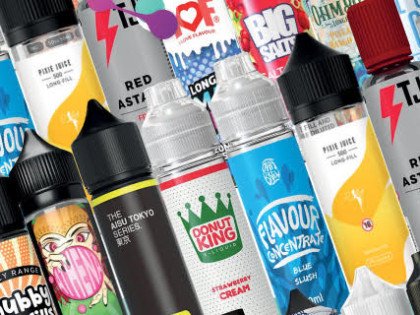“Little is known about cannabis vaping trajectories across adolescence and young adulthood or the co-occurrence with nicotine vaping,” they write. Little will be known from this work either as it follows the same trajectory as every other piece of vape-related work Barrington-Trimis and Leventhal have conducted – lightweight, skewed data analysis, and an intentional conflation of correlation with causation.
Co-author Isabella Lanza told journalists: "Poly-substance nicotine and cannabis vaping appears to be the norm, compared to nicotine-only or cannabis-only vaping for adolescents and young adults. If your teen vapes one substance, it's highly likely they are or will vape other substances.
“Although prevention strategies focused on adolescent vaping should remain prominent, efforts specifically addressing young adult vaping use may be warranted to substantially reduce nicotine and cannabis vaping.”
Barrington-Trimis and Leventhal have been banging the teen epidemic drum since the fake crisis was invented and this theme is continued at the beginning of the introduction. The pair have failed to acknowledge that real world observations continually contradict their statistical predictions, but funding continues to pour in so they can repeat their assertions.
The main shift in focus is to target young adults: “This is a population at high risk because transitions to college and/or the workforce and increased familial and financial responsibility are associated with increased risk of polysubstance use, enduring substance use problems, and substance use disorder.”
As ever, this is playing fast and loose with definitions as they actually stuck to studying school children again. A total of 3396 adolescents and teens were recruited from 10 Los Angeles high schools. Vapers were classified as such if they had done it once in the preceding thirty days.
Despite having had previous worked criticised for using self-reported accounts from children, the team used the same methodology for ascertaining if teens were telling the truth.
“Polysubstance vaping was common, with those in trajectories reflecting more frequent nicotine vaping (adolescent-onset escalating frequent users and young adult–onset frequent users) having a high probability of membership (85% and 93%, respectively) in a cannabis-use trajectory.”
Boiling down tiny groups to obtain huge sounding percentages in order to make calls for stricter legislation: “The findings suggest that public health policy and clinical interventions should address polysubstance vaping in both adolescence and young adulthood.”
And they make a plea for more money: “Further study of the substantial polysubstance vaping observed between nicotine and cannabis vaping trajectories appears to be needed.”
There’s evidence, there’s conjecture, and then there is research by Barrington-Trimis and Leventhal.
Related:
- “Trajectories of Nicotine and Cannabis Vaping and Polyuse From Adolescence to Young Adulthood”, by Lanza, Barrington-Trimis, Leventhal et al. – [link]
- Coverage of Barrington-Trimis’s work over the years, POTV – [link]
Photo Credit:
Eugenio Cuppone on Pixabay - link
Dave Cross
Journalist at POTVDave is a freelance writer; with articles on music, motorbikes, football, pop-science, vaping and tobacco harm reduction in Sounds, Melody Maker, UBG, AWoL, Bike, When Saturday Comes, Vape News Magazine, and syndicated across the Johnston Press group. He was published in an anthology of “Greatest Football Writing”, but still believes this was a mistake. Dave contributes sketches to comedy shows and used to co-host a radio sketch show. He’s worked with numerous start-ups to develop content for their websites.
Join the discussion
Harm Reduction For The Rich
The United Kingdom risks becoming a harm reduction country only for the wealthy, according to Michael Landl of the World Vapers’ Alliance
Longfills as an Alternative to Disposables
The disposable vape ban will impact many people, but there’s no reason to be concerned… Grab yourself a pod kit and a Longfill and you’ll be back to vaping the way you want to, just in a cheaper, more environmentally friendly and legal way.
COP10 is a Threat to Safer Nicotine Products
The EU obscures its position on low-risk alternatives to smoking before the WHO COP10 conference in Panama, starting Monday
Nicotine Is Not A Culprit
Planet of the Vapes has always encouraged smokers to use the quit product that works best for them, and snus is a product that seems to be unfairly blocked because it contains nicotine












